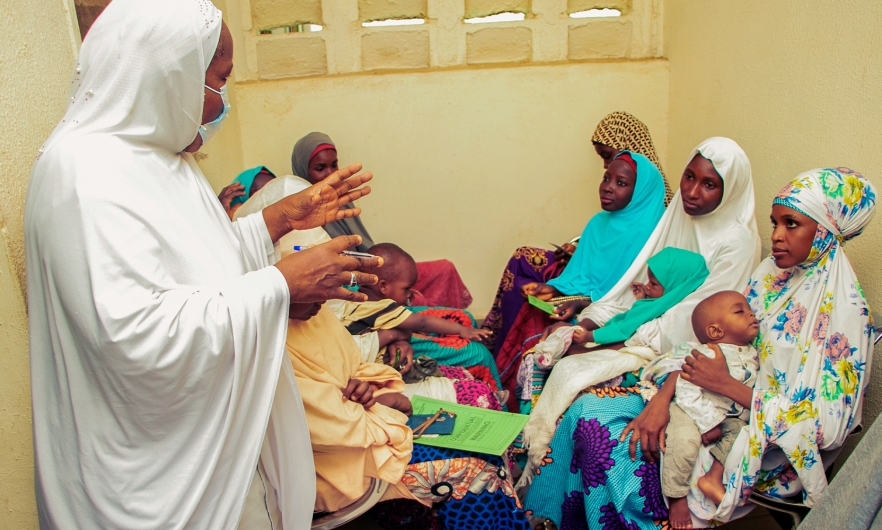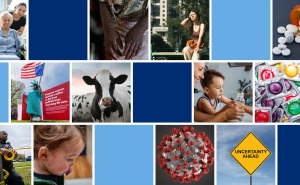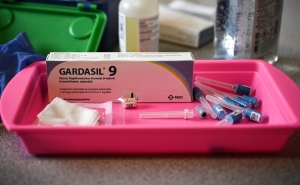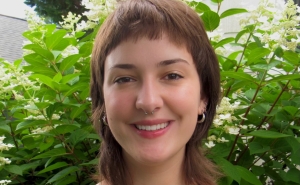Bloomberg School’s Gates Institute Awarded Two Grants Totaling $71.3 Million to Scale Up Sexual and Reproductive Health Interventions Across 170 Cities Worldwide

The Bill & Melinda Gates Institute for Population and Reproductive Health at the Johns Hopkins Bloomberg School of Public Health has been awarded two grants totaling $71.3 million—one from Bayer AG and one from the Bill & Melinda Gates Foundation—to expand the reach of The Challenge Initiative (TCI), a global platform that supports the sexual and reproductive health needs of women and girls living in poor urban communities in Africa and Asia.
The awards—$36.3 million from Bayer and $35 million from the Gates Foundation—cover a four-year period ending in December 2025. This new investment builds on TCI’s achievements over the last five years in 11 countries (Benin, Burkina Faso, Cote d’Ivoire, India, Kenya, Niger, Nigeria, Senegal, Tanzania, Philippines and Uganda) to sustainably scale up proven high-impact family planning interventions.
This next-generation funding will enable The Challenge Initiative to continue its support of city governments implementing evidence-based, high-impact interventions that improve access to contraception and family planning services. The Challenge Initiative’s program currently encompasses 111 cities worldwide, with the potential to reach another 60 cities with this latest round of funding. The funding represents an emerging trend involving corporate, nonprofit, academic, and government entities collaborating on important health programs.
“We are so grateful for this new investment from Bayer and the Bill & Melinda Gates Foundation to continue the groundbreaking work The Challenge Initiative began back in 2016,” said Jose Rimon II, MA, director of the Gates Institute and senior scientist in the Bloomberg School of Public Health’s Department of Population, Family and Reproductive Health. “With this new funding, The Challenge Initiative can focus not only on supporting local governments to rapidly scale up proven, high-impact interventions but also on ensuring impact at the health systems level and on contraceptive uptake—in a more cost-efficient and sustainable manner.”
Cities self-select to be a part of TCI, making a commitment to the health of their communities by bringing their own financial and human resources to the table and then leading program implementation. In return, they receive access to TCI’s Challenge Fund and technical expertise through coaching and training to support implementation of high-impact interventions, which TCI has packaged into easy-to-use toolkits and guidance through its innovative TCI University digital platform. From the outset of engagement, TCI prioritizes sustainability and self-reliance of city governments to lead and own the family planning programs that improve the health and well-being of their communities—even after TCI support ends.
Bayer announced in 2019 that it is committed to help provide 100 million women in low- and middle-income countries with access to modern contraception by 2030. “Our support of The Challenge Initiative is part of this ongoing commitment,” said Claus Runge, head of market access, public affairs, and sustainability at Bayer. “We enthusiastically support The Challenge Initiative’s capacity-building initiatives in these countries.”
TCI’s next phase also aligns with the Gates Foundation’s updated family planning strategy by contributing to its goal to drive impact nationally, regionally, and globally with the TCI platform acting as a scaling lever for high-impact interventions to increase access to family planning services.
“Family planning impacts a number of public health challenges—from maternal and child mortality to gender equality. Effective family planning programs delivered at scale can improve not only the health of the urban community, but also the world at large,” said Dean Ellen J. MacKenzie, PhD, ScM. “These generous awards from Bayer and the Gates Foundation support the overall mission of public health—and the Bloomberg School—to implement large-scale solutions at the community level.”
# # #
Media contacts: Kim Martin at kim.martin@jhu.edu and Barbara Benham at bbenham1@jhu.edu.





